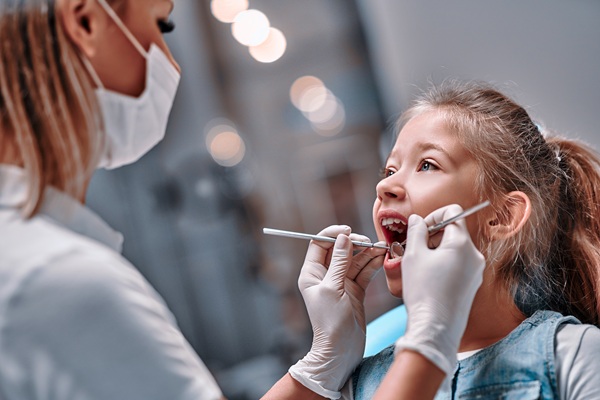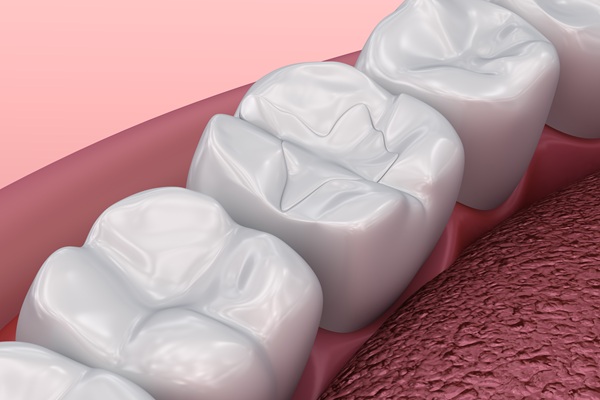4 Dental Restoration Options for Damaged Teeth

A dental restoration is required to restore tooth structure lost due to tooth decay or injury. Dental restorations fix teeth that have been cracked, chipped, fractured or have cavities. Various restoration techniques are intended to restore various degrees of damage. This article reviews different approaches to repairing damaged teeth.
4 Popular dental restoration methods
There are two kinds of dental restorations: direct and indirect. Since the material used to restore the tooth is administered directly to the problem region, fillings and dental bonding are direct tooth restoration procedures usually completed in a single dental appointment.
Indirect restorations, unlike direct restorations, do not involve materials that are applied directly to the tooth. Indirect tooth restorations are made in a lab using impressions of the patient's natural tooth. The tooth is subsequently restored with the completed solidified restoration.
The following are some of the dental restoration options for restoring damaged teeth:
1. Dental bonding
Small cavities, tooth discoloration, and slightly cracked or fractured teeth can all be repaired using dental bonding. The procedure involves the application of a tooth-colored putty. After cleaning the tooth, the dentist will apply the bonding material directly to the problem area. To solidify the bonding, it is subjected to UV or laser light after being applied and molded. The bonding is filed and polished once it has been set.
2. Dental fillings
A filling is a putty-like material that dentists use to cover and seal a cavity or decayed area. Dental amalgam, gold, dental resin, or porcelain may all be used. The dentist will administer a local anesthetic to numb the tooth, clean it, and remove any decaying tissue before placing the filling. The filling material is shaped, polished, and allowed to solidify once applied. Only minor cavities may be filled with dental fillings. If the tooth is more severely damaged, a different kind of repair is selected.
3. Inlays and onlays
Inlays and onlays are a kind of indirect restoration used to restore teeth that have suffered significant damage that cannot be corrected with dental fillings. Metal, composite resin, and porcelain are the most common materials used.
An inlay is used to repair a cavity or damage that affects only the center of the tooth. On the other hand, an onlay fills the cavity and covers the chewing surface and, in some instances, the tooth's sides. Onlays are used to repair teeth with damaged cusps. Inlays and onlays are indirect fillings that are also referred to as partial crowns. They repair cavities in the same way that conventional fillings do, and they reinforce the tooth structure in the same way as crowns do.
4. Dental crowns
Crowns are intended to cover the whole outer tooth and are used to repair badly damaged teeth. Crowns, like inlays and onlays, are laboratory-made indirect restorations. Crowns safeguard teeth that have been severely damaged by infection and additional structural deterioration.
Do you need a dental restoration?
For each patient, the dentist will select the least intrusive or most lasting dental restoration possible. Find out which dental treatment is ideal for you by scheduling an appointment with our dental office today.
Request an appointment here: https://www.mycaredentals.com or call My Care Dental at (512) 590-6634 for an appointment in our Austin office.
Check out what others are saying about our dental services on Yelp: Dental Restorations in Austin, TX.
Recent Posts
Dental restoration treatments can be used to repair teeth that have been damaged by tooth decay. Such treatments can also restore the look and functionality of the tooth.Tooth decay is an oral issue that most people have to deal with at some point. There are acids in some of the foods we consume, like citrus…
Dental Restorations is a type of treatment used to improve teeth that are in bad shape due to injury, decay, or genetic imperfections. There are a number of dental restorations that patients can consider, however, it is ultimately up to a general dentist to make a recommendation and treatment plan. Most procedures aim to make…
A smile makeover is a dental process that addresses multiple cosmetic concerns. Each smile makeover treatment plan is customized for the patent and their specific treatment needs and goals. Common issues addressed during a smile makeover include teeth stains, damaged teeth (e.g., chips, cracks), enamel erosion, a gummy smile, and teeth loss. The benefits of a…
Many people are choosing a smile makeover as a way to improve the way their teeth and gums appear. Having a nice smile is a goal for many and since there are many options available, understanding all of the options is the next step.A general dentist is the best resource to utilize when wanting to…


